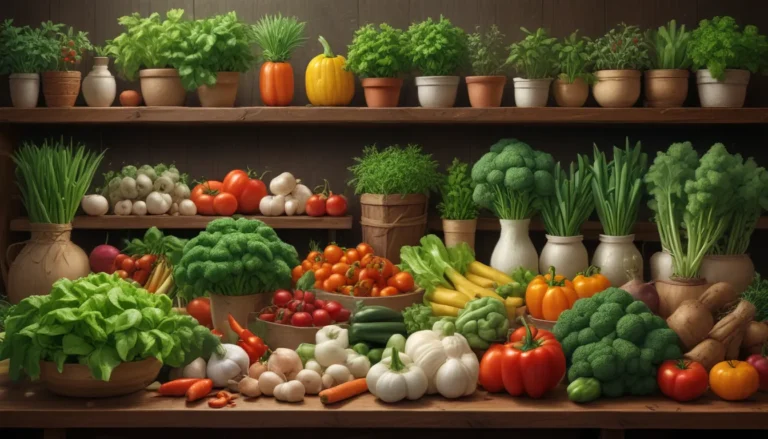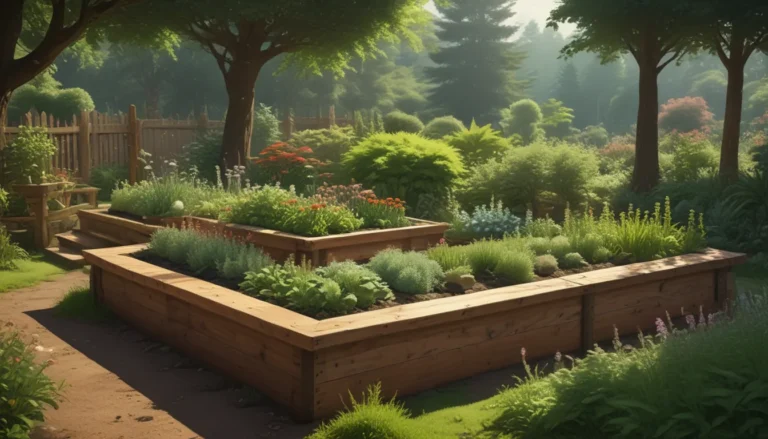Tips for Starting Your Organic Garden

Are you interested in starting an organic garden but feeling overwhelmed or unsure of where to begin? Don’t worry, making the switch to organic gardening is easier than you think! And the benefits are substantial.
Organic gardening allows you to have complete control over what you’re growing, eliminate harmful chemicals, and create a safe and regenerative habitat for beneficial insects, birds, and small mammals. Plus, growing your own organic fruits, vegetables, and herbs allows you to enjoy fresh, delicious produce while knowing exactly what you and your family are consuming.
In this comprehensive guide, we’ll explore everything you need to know to get started with organic gardening, regardless of whether you’re a seasoned gardener or just starting out. So, let’s roll up our sleeves and dive into the world of organic gardening!
What Is Organic Gardening?
Organic gardening is a holistic approach to gardening that works with nature to produce flowers, fruits, herbs, and vegetables without the use of synthetic materials. By creating a diverse ecosystem that promotes healthy soil, organic gardening supports healthy plants and provides a safe and regenerative habitat for beneficial insects, birds, and other garden-friendly creatures.
Organic gardening focuses on sustainable methods for building and conserving nutrient-rich soils, natural pest management practices, and overall environmental health. By adopting organic gardening practices, you’re not only benefiting your own garden but also contributing to larger-scale environmental benefits.
Essential Steps for Organic Gardening
Build Your Soil
Healthy soil is the foundation of any successful garden. It should be rich in nutrients, well-draining, and contain a diverse array of organisms that support plant life. To improve your soil quality, consider the following steps:
- Conduct a soil test to determine its composition and nutrient levels.
- Add organic materials such as compost, earthworm castings, grass clippings, and mulch to increase soil fertility.
- Adjust soil pH levels with materials like agricultural lime or elemental sulfur.
- Focus on building soil structure, promoting good drainage, and increasing nutrient content to support healthy plant growth.
Companion Planting
Companion planting involves strategically placing certain plants together to improve pest control, pollination, and crop productivity. By planting companions that attract beneficial insects or repel pests, you can create a more balanced and biodiverse garden ecosystem.
Crop Rotation
Crop rotation is a key practice in organic gardening that helps prevent soilborne diseases, insect infestations, and weed growth. By rotating your crops each season and avoiding closely related species, you can maintain soil health and improve overall garden productivity.
Fertilize Naturally
Instead of relying on synthetic fertilizers, consider using natural fertilizers to feed your plants and improve soil health. Materials like animal manure, compost, bone meal, blood meal, and fish emulsion provide essential nutrients and promote healthy plant growth without harming the environment.
Mulching Magic
Applying a layer of mulch to your garden beds can help retain moisture, reduce weed growth, and keep soil temperatures regulated. Materials like compost, straw, pine needles, and leaf mold make excellent mulches that benefit your plants and soil.
Pest Control
Managing pests in an organic garden can be challenging but rewarding. By employing methods like beneficial predatory insects, botanical insecticides, diatomaceous earth, and trap crops, you can effectively control pests without resorting to harsh chemicals.
Creating a Pollinator-Friendly Garden
Pollinators are essential for healthy plant growth and seed production in your garden. By planting a variety of nectar-rich flowers, providing habitat and water sources, you can attract pollinators like bees, butterflies, birds, and other beneficial insects to your garden. Creating a pollinator-friendly environment benefits your plants, the environment, and supports biodiversity in your garden.
Organic Seeds and Plants
Choosing organic seeds and plant stock ensures that your garden remains chemical-free and environmentally friendly. Organic seeds are grown without synthetic chemicals, pesticides, and are non-GMO, making them ideal for sustainable gardening practices. By selecting organic seeds and plants, you’re supporting natural and healthy garden growth from the start.
Conclusion
Starting an organic garden is a rewarding and environmentally friendly endeavor that offers a host of benefits for you and the planet. By following these essential steps and practices for organic gardening, you can create a healthy, productive, and sustainable garden that nourishes both your plants and the ecosystem.
So, are you ready to get your hands dirty and start your organic gardening journey? Remember, with a little knowledge, planning, and a bit of hard work, you can cultivate a beautiful and bountiful organic garden that you can enjoy for years to come!
If you have any questions or need further guidance on organic gardening, feel free to reach out to us in the comments section below. Happy gardening!





